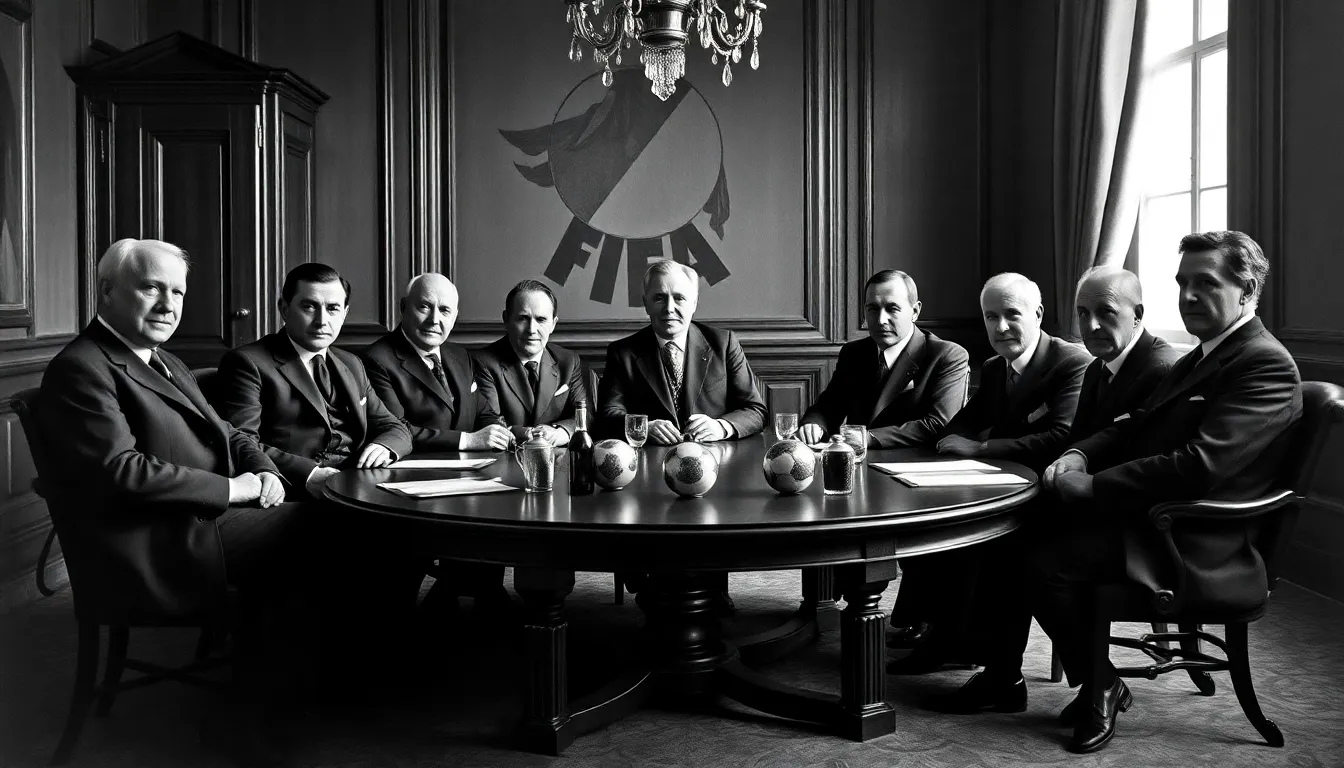Table of Contents
ToggleIn the world of soccer, few acronyms pack as much punch as FIFA. But what does FIFA actually stand for? If you thought it was just a fancy way to say “Football Is Fantastic Always,” think again! This global powerhouse is the governing body that oversees the beautiful game, bringing nations together in a whirlwind of competition, camaraderie, and a whole lot of drama.
What Is FIFA Stand For?
FIFA stands for Fédération Internationale de Football Association. This French term translates to International Federation of Association Football in English. Founded in 1904, FIFA is the global governing body for the sport of soccer. It oversees international competitions, including the FIFA World Cup, which is held every four years and attracts millions of viewers worldwide.
FIFA’s role includes setting the rules of the game, promoting soccer globally, and organizing tournaments. It unites national football associations, facilitating cooperation among its members. With 211 member associations, FIFA represents more countries than the United Nations, demonstrating its extensive reach and influence.
FIFA also works on development initiatives aimed at improving the quality of soccer across different regions. Programs focus on grassroots development, women’s soccer, and coaching education. Such efforts ensure the sport’s growth at all levels, from amateur clubs to professional leagues.
The organization also plays a critical role in maintaining fair play and integrity within the sport. FIFA implements regulations related to player transfers, matches, and conduct to uphold the standards expected in competitive soccer. This commitment helps foster a level playing field where nations can compete fairly.
FIFA is much more than an acronym; it represents a framework for international collaboration in soccer, making significant contributions to the sport’s development and governance.
History of FIFA

FIFA’s journey began on May 21, 1904, when it was founded in Paris. Its establishment aimed to create a unified governing body for international soccer, facilitating coordination among national associations.
Founding of FIFA
FIFA was founded by seven football associations: Belgium, Denmark, France, the Netherlands, Spain, Sweden, and Switzerland. The first president, Robert Guérin, led the organization in its early years. The goal focused on creating uniform rules and organizing international matches. By 1913, membership expanded to 16 associations. FIFA’s recognition grew, especially after the 1906 World Cup in Switzerland, which showcased its commitment to global cooperation in soccer.
Evolution of FIFA
FIFA’s structure and influence evolved significantly over the decades. In 1930, FIFA hosted its inaugural World Cup in Uruguay, marking the first international tournament of its kind. Over time, FIFA developed its regulations, enhancing the sport’s governance. The introduction of women’s tournaments in the 1990s showcased FIFA’s commitment to inclusivity. FIFA’s expansion to 211 member associations today reflects its global footprint, making it the largest sports governing body. Its ongoing initiatives promote grassroots programs, coaching education, and fair play, reinforcing its pivotal role in shaping the future of soccer.
Functions of FIFA
FIFA plays a central role in overseeing and organizing global soccer activities. It ensures fair governance and competitive integrity across all levels of the sport.
Governance of Football
FIFA establishes the framework for governing soccer worldwide. It sets regulations covering player transfers, match conduct, and national association responsibilities. FIFA creates standard rules and guidelines, enhancing competitive integrity and uniformity in the game. The organization’s Disciplinary Committee manages violations, while its Ethics Committee investigates misconduct to uphold integrity. FIFA engages member associations in decision-making processes, fostering unity and cooperation among diverse countries.
Organizing Competitions
FIFA coordinates major international competitions, including the FIFA World Cup and youth tournaments. It oversees the selection process for host nations and manages logistical aspects of each event. FIFA’s Competition Regulations outline the rules for tournament structure, player eligibility, and match schedules. Each competition aims to enhance the sport’s visibility, attract global audiences, and generate economic benefits for host countries. By organizing these events, FIFA promotes soccer development and fosters national pride among participants and supporters alike.
Importance of FIFA
FIFA plays a crucial role in promoting and governing soccer worldwide. Its influence extends across various aspects of the sport, uniting nations through the love of the game.
Global Impact on Football
FIFA significantly impacts football by establishing standards and regulations that promote uniformity and fairness. The organization oversees international tournaments, including the FIFA World Cup, which captures the attention of millions and boosts global enthusiasm for soccer. With 211 member associations, FIFA facilitates cross-cultural exchanges, creating a platform for diverse talents to shine on the world stage. Economic benefits arise from hosting these events, providing opportunities for tourism, infrastructure development, and national pride among participating nations.
Development Initiatives
FIFA’s development initiatives target grassroots programs and women’s soccer, ensuring access to the sport for all. The organization invests in coaching education and training resources, enhancing skills at local levels. Programs like the FIFA Forward initiative distribute funds to national associations, enabling them to launch development projects tailored to their communities’ needs. These efforts contribute to sustainable growth in soccer, broaden participation, and strengthen the global football network. By focusing on diversity and inclusivity, FIFA promotes a collaborative atmosphere that nurtures future talent in the sport.
FIFA stands as a monumental force in the world of soccer. Its dedication to promoting the sport and uniting nations is evident through its extensive initiatives and global competitions. By establishing a framework of regulations and fostering inclusivity, FIFA not only enhances the quality of soccer but also nurtures future talent. The organization’s commitment to fair play and ethical governance ensures that the beautiful game remains accessible and enjoyable for all. As FIFA continues to evolve, its influence will undoubtedly shape the future of soccer on a global scale.




